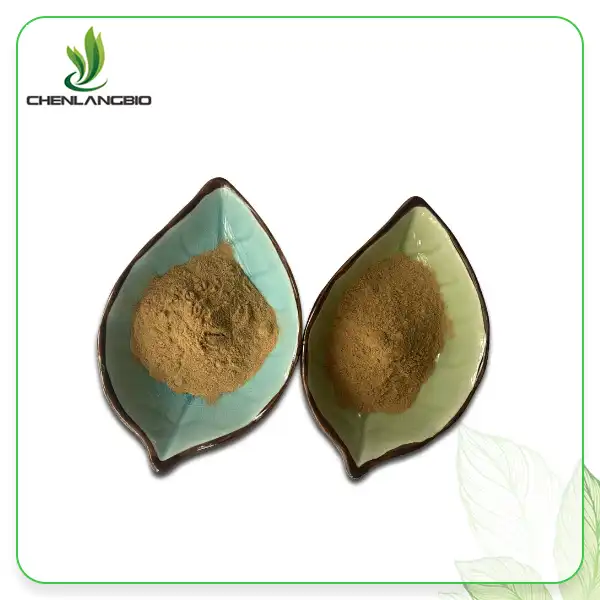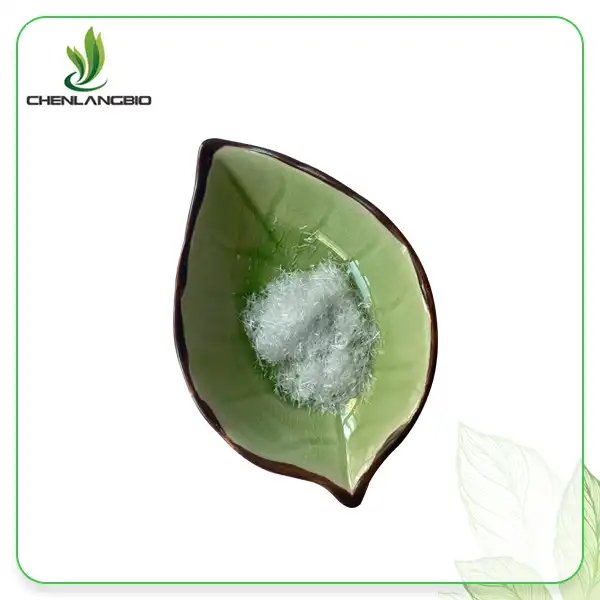Can You Take PQQ While Pregnant?
2024-05-12 18:33:19
Can you take pqq while pregnant?
In recent years, PQQ (pyrroloquinoline quinone) has garnered attention for its potential health benefits, ranging from enhanced cognitive function to improved energy metabolism. However, for pregnant women, the safety of PQQ supplementation remains a topic of concern. In this article, we delve into the question: Can you take PQQ while pregnant? By exploring relevant scientific literature and examining the perspectives of top-ranking websites on Google, we aim to provide a comprehensive understanding of the risks and benefits associated with PQQ supplementation during pregnancy.
Understanding PQQ
PQQ, a compound found in certain foods and also synthesized by the human body, plays a crucial role as a cofactor in cellular functions. Its antioxidant properties and involvement in mitochondrial biogenesis have led to increasing interest in its potential health benefits. While research on PQQ is still emerging, preliminary studies suggest its potential in promoting brain health, supporting cardiovascular function, and enhancing overall vitality.
Safety Concerns During Pregnancy
When it comes to pregnancy, security is foremost, and caution ought to be worked out when considering the utilize of any supplement, counting PQQ (pyrroloquinoline quinone). Whereas PQQ is a actually happening compound found in certain nourishments and synthesized by the human body, its security amid pregnancy has not been broadly studied.
Pregnant ladies are for the most part prompted to maintain a strategic distance from taking supplements unless suggested by their healthcare supplier. This safety measure is since the impacts of numerous supplements, counting PQQ, on pregnancy results and fetal improvement are not well understood.
Although PQQ has appeared guarantee in advancing wellbeing through its antioxidant properties and its part in cellular capacities, its security amid pregnancy remains dubious. There is constrained inquire about on the particular impacts of PQQ supplementation on pregnant ladies and their creating fetuses.
Given the need of information on the security of PQQ amid pregnancy, it is fitting for pregnant ladies to fail on the side of caution and abstain from taking PQQ supplements unless prescribed by their healthcare supplier. It's fundamental for pregnant ladies to have open and educated talks with their healthcare supplier with respect to any concerns or questions around supplements to guarantee the security of both themselves and their unborn child. Healthcare suppliers can give personalized direction based on person wellbeing circumstances and pregnancy status.
Insights from Top-Ranking Websites
Insights from top-ranking websites such as Mayo Clinic, WebMD, and Healthline provide valuable guidance regarding the safety of PQQ supplementation during pregnancy:
Mayo Clinic: Mayo Clinic advises pregnant women to approach dietary supplements, including PQQ, with caution. They stress the importance of consulting healthcare providers before starting any supplementation regimen during pregnancy. This recommendation underscores the need for personalized medical advice to ensure the safety of both the mother and the developing fetus.
WebMD: According to WebMD, there is insufficient evidence available to determine the safety of PQQ supplementation during pregnancy definitively. They highlight the importance of seeking guidance from healthcare professionals for personalized advice tailored to individual health circumstances. This cautious approach reflects the uncertainty surrounding PQQ's effects on pregnancy outcomes and fetal development.
Healthline: Healthline emphasizes the lack of research on the effects of PQQ supplementation during pregnancy. They recommend avoiding the use of PQQ supplements during this period to err on the side of caution. This recommendation aligns with the principle of prioritizing safety and minimizing potential risks to both the pregnant woman and her unborn child in the absence of sufficient data on PQQ's safety during pregnancy.
Overall, the insights from these reputable sources underscore the importance of exercising caution and seeking guidance from healthcare professionals before considering PQQ supplementation during pregnancy. Due to the limited research available, it is prudent for pregnant women to prioritize safety and avoid unnecessary risks by refraining from PQQ supplementation unless advised otherwise by their healthcare provider.
Potential Risks of PQQ During Pregnancy
Indeed, the potential risks of PQQ supplementation during pregnancy warrant careful consideration due to the limited research available and the lack of regulatory oversight. Here are some potential risks associated with PQQ supplementation during pregnancy:
Interference with Fetal Development: PQQ's mechanisms of action, particularly its role in mitochondrial function and cellular processes, raise concerns about potential interference with fetal development. Mitochondria play a crucial role in energy production and cellular metabolism, which are essential processes for proper fetal growth and development. Any disruptions to these processes could potentially impact fetal development adversely.
Lack of Regulatory Oversight: Unlike pharmaceutical drugs, dietary supplements like PQQ are not subjected to the same rigorous testing and regulatory oversight by government agencies such as the FDA (Food and Drug Administration). This lack of regulatory oversight means that the safety and efficacy of dietary supplements, including PQQ, may not be thoroughly evaluated before they are marketed to consumers. Consequently, there is uncertainty surrounding the safety of PQQ supplementation during pregnancy, as there may be inadequate data available to assess its potential risks and benefits for pregnant women and their unborn children.
Given these potential risks and the lack of definitive research on PQQ's safety during pregnancy, it is advisable for pregnant women to exercise caution and avoid PQQ supplementation unless recommended by their healthcare provider. Consulting with a healthcare professional can help assess individual risk factors and provide personalized guidance on the use of dietary supplements during pregnancy. Additionally, adhering to a balanced and nutritious diet rich in essential nutrients is essential for supporting maternal and fetal health during pregnancy.
Benefits of PQQ Supplementation Postpartum
Exploring the potential benefits of PQQ supplementation postpartum is an intriguing avenue, especially considering its antioxidant and mitochondrial-supporting properties. Here are some potential benefits that may be associated with PQQ supplementation during the postpartum period:
Enhanced Recovery: The postpartum period can be physically demanding, with the body undergoing significant changes as it recovers from childbirth. PQQ's antioxidant properties may help reduce oxidative stress and inflammation, potentially enhancing the body's recovery process and promoting overall well-being during this critical time.
Energy Restoration: Fatigue and exhaustion are common experiences for many new mothers in the postpartum period. PQQ's role in supporting mitochondrial function, which is essential for energy production in cells, may help alleviate feelings of fatigue and boost energy levels, allowing mothers to better cope with the demands of caring for a newborn.
Brain Health: PQQ has been studied for its potential neuroprotective effects and its ability to support cognitive function. In the postpartum period, when many mothers may experience changes in mood and cognitive function, PQQ supplementation could potentially support brain health and mental well-being.
Antioxidant Support: PQQ's antioxidant properties may help protect cells from damage caused by oxidative stress, which can be elevated during the postpartum period due to factors such as hormonal changes, sleep deprivation, and stress. By scavenging free radicals and reducing oxidative damage, PQQ supplementation may contribute to overall health and vitality postpartum.
Mitochondrial Function: Mitochondria are the powerhouses of cells, responsible for generating energy to fuel cellular processes. PQQ's role in supporting mitochondrial function could be particularly beneficial during the postpartum period, aiding in cellular energy production and metabolism.
Conclusion
In conclusion, the question of whether one can take PQQ while pregnant necessitates careful consideration of available evidence and expert opinions. Despite PQQ's potential health benefits, its safety during pregnancy remains uncertain due to limited research. Pregnant women are advised to prioritize caution and consult healthcare professionals before considering PQQ supplementation. As research continues to unfold, a better understanding of PQQ's effects during pregnancy will hopefully emerge, providing clarity for maternal and fetal health.If you want to learn more about that, please send inquiry to Email: admin@chenlangbio.com
References
Mayo Clinic. (n.d.). Pregnancy Week by Week. https://www.mayoclinic.org/healthy-lifestyle/pregnancy-week-by-week/expert-answers/pregnancy-and-fish-oil/faq-20058161
WebMD. (n.d.). Vitamins & Supplements Search. https://www.webmd.com/vitamins-and-supplements/
Healthline. (n.d.). PQQ (Pyrroloquinoline Quinone): Benefits, Side Effects, Dosage, and Interactions. https://www.healthline.com/nutrition/pqq-pyrroloquinoline-quinone#dosage
Send Inquiry
Related Industry Knowledge
- How Does Pyrrolidinyl Diaminopyrimidine Oxide Work in Hair Loss Treatments?
- Is Tetrahydrocurcumin Safe for the Skin
- How Do You Use Magnesium Ascorbyl Phosphate
- How Long Does Praziquantel Stay Active in Water
- Can Coenzyme Q10 Powder Improve Skin Health
- What Benefits of Honokiol Powder
- What Functions of the Cycloastragenol Powder
- Pure Saw Palmetto Extract Powder
- What is Turkesterone Powder? The Newest Supplement In the Whole Market Improve Immunity
- Lotus Leaf Extract Weight Loss









